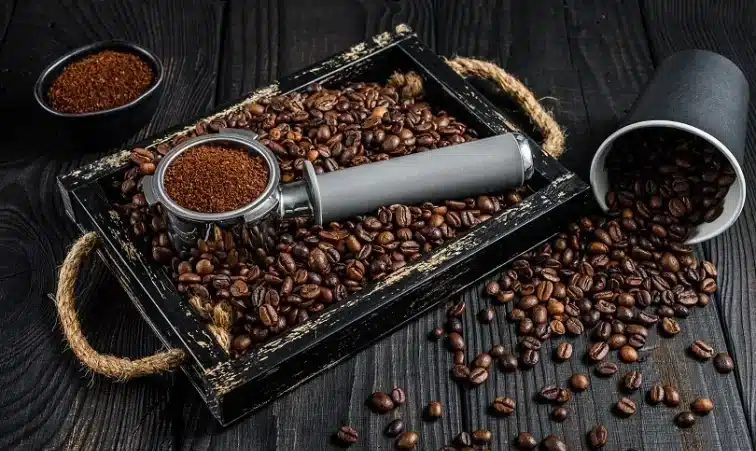Despite its hefty price tag, Indonesian kopi luwak or better known as cat poop coffee is causing a stir worldwide. But what is seen as the ultimate luxury coffee really good for your health? Read on to know more
There are better reasons to visit Bali than to emulate Elizabeth Gilbert’s path to self-discovery. And unlike Gilbert who was on her Eat, Pray, Love pilgrimage, my idea to explore the gorgeous Indonesian island was definitely not to get spiritually healed or to find a bestseller story.
In Bali, an Indonesian friend had mentioned that I must try kopi luwak, a Balinese coffee considered to be the most expensive in the world. Later, when she shared the location of one such coffee plantation, barely 10 km from my stay in Ubud, I was ready to give in to her persistence.
Kopi Luwak – the name sounded exotic and so desirable. But, a little bit of research was enough to make me a little wary about tasting a cup of joe that comes from the droppings of wild animals.
The heftily priced coffee is made from beans that have been eaten, digested and defecated by the Asian palm civet cats — hence the name cat poop coffee. Sounds weird, right? But, what makes it weirder is the price tag – between $35-$100 a cup or $200-$500 a pound!
Is kopi luwak safe to drink?
Lead by sheer curiosity to understand the process of civet coffee making, I decided to visit a luwak coffee farm and plantation the next morning. For generations, Indonesian coffee producers have maintained that their kopi luwak is the best coffee in the world boasting about its taste and health benefits. The credit, however, goes to these cat-like mammals or palm civets who are not just picky eaters but are also believed to have a nose for the ripest, luscious and best coffee cherries. Basically, its the fermentation taking place in their digestive system that makes these coffee beans healthier.
Massimo Marcone, a food scientist at the University of Guelph, Canada too confirms that the coffee is safe. During his research, he found that kopi luwak has lower bacterial counts than regular coffee. “When luwak feeds on coffee beans their stomach acids and enzymes digest the beans’ cherry-like covering and ferment the beans themselves before they’re excreted. It’s believed that fermentation process could give kopi luwak coffee a unique flavour,” said Marcone in his report.
There are many advocates of kopi luwak, especially for its flavour. Many coffee connoisseurs find the kopi luwak beans to be superior, smoother and chocolaty. “Proteins are responsible for much of the coffee flavour, particularly bitterness. Since kopi luwak beans have less protein, they may produce a less bitter coffee,” said Marcone. So, when the coffee beans are pooped out, these are collected, washed, roasted, brewed and transformed into aromatic cat poop coffee.
Interestingly, some inconsistency with kopi luwak flavours and quality is quite obvious owing to the rigorousness of the processing and depending on civet’s own health and diet. Also, the type of coffee depends largely on the variety of beans eaten by civet – it may be from the arabica, robusta or any other coffee plant available in the wilderness.
Superior coffee beans
Who would have ever thought such a strangely flavoured brew can also be so healthy? In 2013, researchers from Osaka University and the Indonesian Coffee and Cocoa Research Institute teamed up to study the biological and metabolic differences between kopi luwak and other types of coffee. The results pointed out that the health benefits of kopi luwak far exceed those of any other type of coffee. Researchers identified kopi luwak to have significantly higher levels of Malic Acid – known for its ability to rapidly increase energy, Citric Acid – to combat the development of kidney stones, increase iron absorption, etc. and Inositol – to prevent depression and anxiety, etc.
Despite its rare taste and health benefits, some coffee aficionados are rampantly trying to debunk beliefs around kopi luwak. However, with an increase in market demand and kopi luwak being stocked at luxury retailers all over the world including Harrods in London, many coffee luwak farms in Indonesia have started caging these wild animals where they are force-fed caffeine-laden coffee cherries all day, every day.
What’s more? With this incredibly cruel practice, the whole concept of wild civet cats choosing the best coffee cherries themselves is totally thrown out of the window. However, the beans excreted from these captivated civets are of inferior quality.
Variety and price
Kopi luwak comes in three varieties: pure (wild), blended (containing at least 1% of kopi luwak coffee), and manufactured. The most expensive is the wild civet coffee called Sijahtra that comes from the Gayo Mountains district of northern Sumatra. It involves a tedious process of hand-harvesting the dung of wild civets.
Unfortunately, because of the exclusivity of coffee luwak and high price tag, today about 80% of kopi luwak available in the market is fake. So, before buying or trying kopi luwak, make sure you pick ‘Certified Wild Kopi Luwak’ only. This will also take away any ethical concerns related to consuming the poop coffee.
And, for me, its kopi luwak’s story, novelty and laborious process that makes every sip of it worth the price. Though sensory properties of the coffee are debatable. So if you are planning to visit Indonesia, Vietnam or Philippines, make sure you try hot kopi (coffee) yourself to determine if you believe the hype!

















